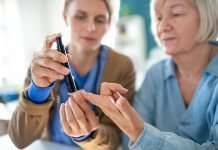
Scientists at Baylor College of Medicine are finding ways to fight the big problem of antibiotic resistance.
This issue caused nearly 1.3 million deaths in 2019 around the world. Bacteria become resistant, which means antibiotics can’t kill them anymore.
A Possible Solution
The team has now discovered a drug that seems to slow down this resistance. They tested it in the lab and on animals. The drug is called dequalinium chloride (DEQ). This discovery might help to keep antibiotics working longer.
The Study Details
Dr. Susan M. Rosenberg, the lead scientist, and her team tested DEQ on E. coli bacteria. This bacteria often becomes resistant to a common antibiotic called ciprofloxacin (cipro).
Bacteria become resistant when their genes change. DEQ seems to slow down these changes.
How Antibiotic Resistance Happens
Previous work from Dr. Rosenberg’s lab showed that E. coli bacteria start to change faster when exposed to cipro. This happens because the bacteria are under stress.
They respond to stress by making more protective molecules. But they also start making more gene changes. Some of these changes cause antibiotic resistance.
Resistance allows the bacteria to survive, even when treated with cipro. This study is the first to show this process happening in animal infections.
Looking for a Solution
The team then tested over a thousand drugs. They were looking for ones that could slow down the stress response in the bacteria. This would slow down the gene changes and help prevent resistance.
They also wanted to find drugs that didn’t slow down the bacteria’s growth. If a drug did that, any resistant bacteria could start growing faster.
DEQ: A Promising Candidate
DEQ turned out to be the best choice. When combined with cipro, DEQ slowed down the development of resistance.
This happened in both lab cultures and animals. And the bacteria didn’t become resistant to DEQ itself.
The next step is to test DEQ on people. The scientists want to see if it can slow down antibiotic resistance in patients.
If you care about health, please read studies about Vitamin D deficiency linked to severe COVID-19, and how diets could help manage post-COVID syndrome.
For more information about health, please see recent studies about new evidence on rare blood clots after COVID-19 vaccination, and results showing zinc could help reduce COVID-19 infection risk.
The study was published in Science Advances.
Copyright © 2023 Knowridge Science Report. All rights reserved.




